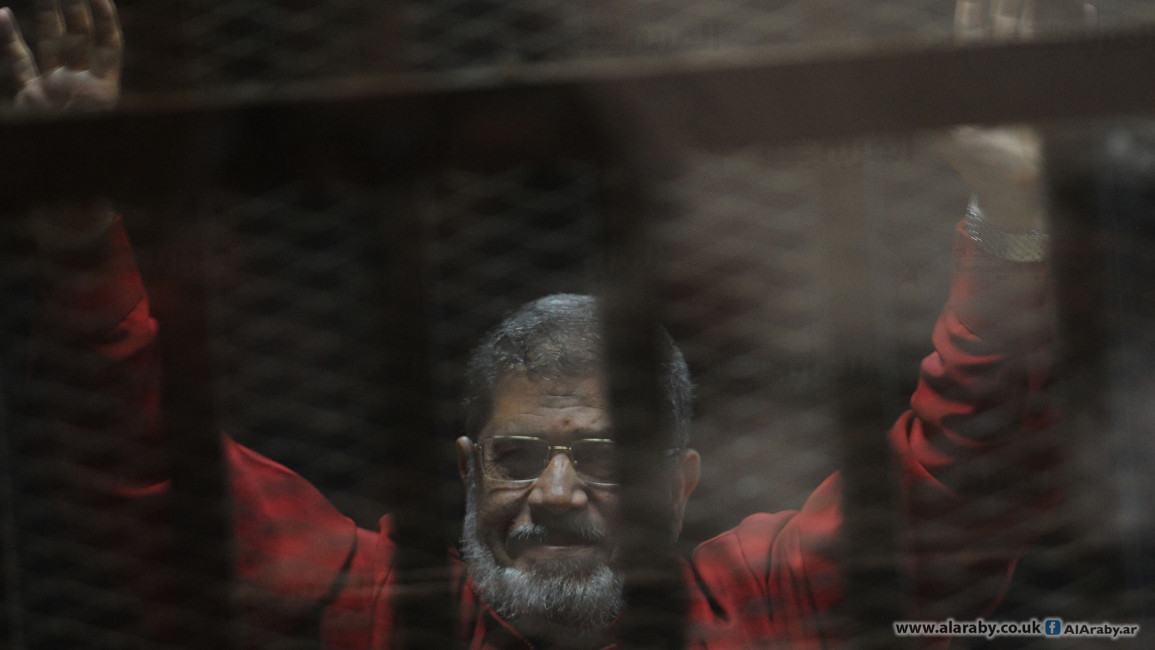Morsi's 'Qatar espionage' trial resumes in Egypt
A Cairo court was due to resume the trial of ousted former president Mohammad Morsi on Tuesday, along with ten other members of the banned Muslim Brotherhood in the so called 'Qatar espionage' case.
The defendants are facing charges of leaking military and state secrets to Qatar through the Al-Jazeera network and 'harming the security' of the county.
Tuesday’s session will once again examine alleged evidence seized by police in the case.
In the last session, prosecutors examined evidence seized from smartphones and computers of many of the defendants, which mainly contained information that had no relation to the spying charges.
The evidence presented revealed personal phone calls with their families and finances, Disney cartoons, PDF files of the Quran and prayer time charts.
The hard disk belonging to the daughter of Morsi’s former secretary was also probed in the session, which was attended by the son of assassinated Prosecutor General Hisham Barakat, uncovering Arabic pop songs and soap opera soundtracks.
Other evidence shown included images of pro-Morsi marches and images of the former president in meetings with his advisors.
Among the others standing trail on espionage charges with the former president are a documentary maker, a flight attendant, a teaching assistant and journalists.
The former Islamist president was elected president in June 2012. He was ousted in July 2013 in military coup, following mass protests against him.
'All-out' repression
Morsi was recently sentenced to death on charges of murder and attempted murder during a prison break, he will appear in court wearing the red prison uniform reserved for prisoners on death row.
Under controversial new anti-terrorism laws, which Egypt looks set to pass, the president will have the power to sign off on national security rulings without defendants being granted an appeal.
This means the executions of the Brotherhood’s leadership can be carried out any time after the draft law is ratified.
Human rights organisations have condemned Morsi’s death sentence and described earlier trials as a ‘sham’.
Amnesty International in late June warned that two years after the army ousted president Mohamed Morsi, Egypt has regressed into "all-out repression", in a bid to crush dissent.
The London-based human rights watchdog said that Egyptian authorities, led by President Abdel Fattah al-Sisi, are engaged in a blatant attempt to "nip in the bid any future threat to their rule".
"Mass protests have been replaced by mass arrests," Amnesty said.



